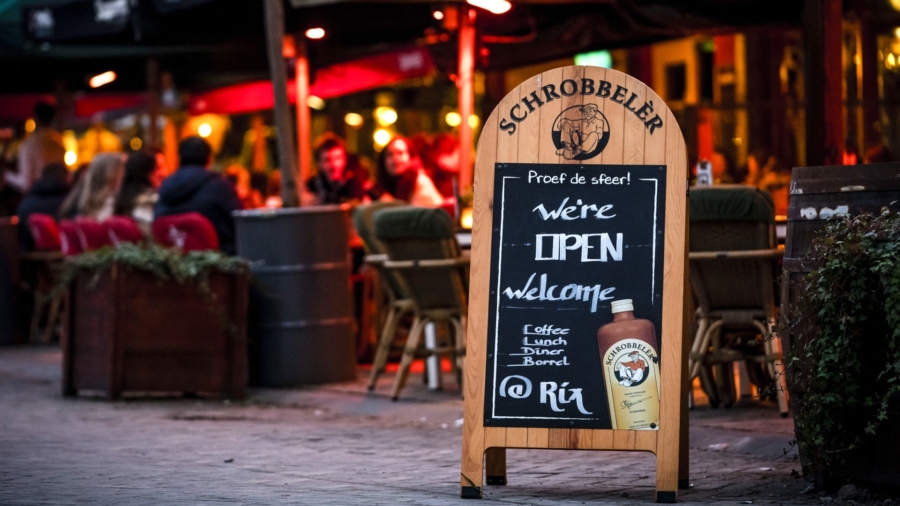The Dutch government announced it will start lifting one of the toughest COVID-19 restrictions enforced in Europe, allowing the hospitality industry to again welcome back customers.
“As of Jan. 26, most locations in our country can once again be open, under certain conditions,” the government said in guidance explaining the condition of reopening. “This means that restaurants and bars, cinemas, theatres, music venues, museums, zoos, and amusement parks can reopen.”
The Netherlands has been under a hard lockdown since mid-December—when the government forced non-essential shops and contact professionals such as barbers to shut doors.
Since Jan. 26, the Dutch hospitality industry is allowed to welcome back customers, though only with a reduced capacity and social distancing rules in place. The sector will also not be allowed to open between 10 p.m. to 5 a.m. and customers must be able to present a COVID-19 vaccine passport to allow entry.
Thousands of protesters recently packed streets in the country as anger mounted over the government’s order to allow non-essential shops, barbers, and sex workers to continue business on Jan. 15, while other venues such as restaurants and cafes had to remain shut.
Dutch Prime Minister Mark Rutte said on Tuesday as he announced the loosening of the toughest CCP (Chinese Communist Party) virus restrictions in Europe that the government is “taking a big step today to unlock” the country.

“We really are taking a risk today, and we have to be clear about that,” Rutte said, pointing out that the current CCP virus cases “are really going through the roof.”
The relaxation of restrictions comes as the National Institute for Public Health and the Environment (RIVM), an independent agency of the Dutch Ministry of Health, on Tuesday reported a record 366,120 cases for the previous week, a 51 percent increase. Though the overall number of CCP virus cases has increased, as well as hospitalizations, the number of patients admitted to the ICU has declined.
Nearly 90 percent of Dutch adults have been jabbed and around 57 percent have had a booster shot. Of those aged 60 and above who are eligible for a booster, about 90 percent have received the shot, according to the RIVM.
In Denmark, meanwhile, Prime Minister Mette Frederiksen addressed the nation on Wednesday, saying that after many solemn news conferences she could finally deliver “incredibly good news,” announcing that the government will be removing all remaining CCP virus measures from the start of February.

“Denmark will be open again, completely open,” she said, adding that while the pandemic is still in place, the government believes Denmark had overcome “the critical phase.”
It was not immediately clear what restrictions Danes will end but they likely will include the digital health pass, which now must be used to enter museums, nightclubs, cafes, party buses, and to be seated indoors in restaurants.
The Associated Press contributed to this report.

